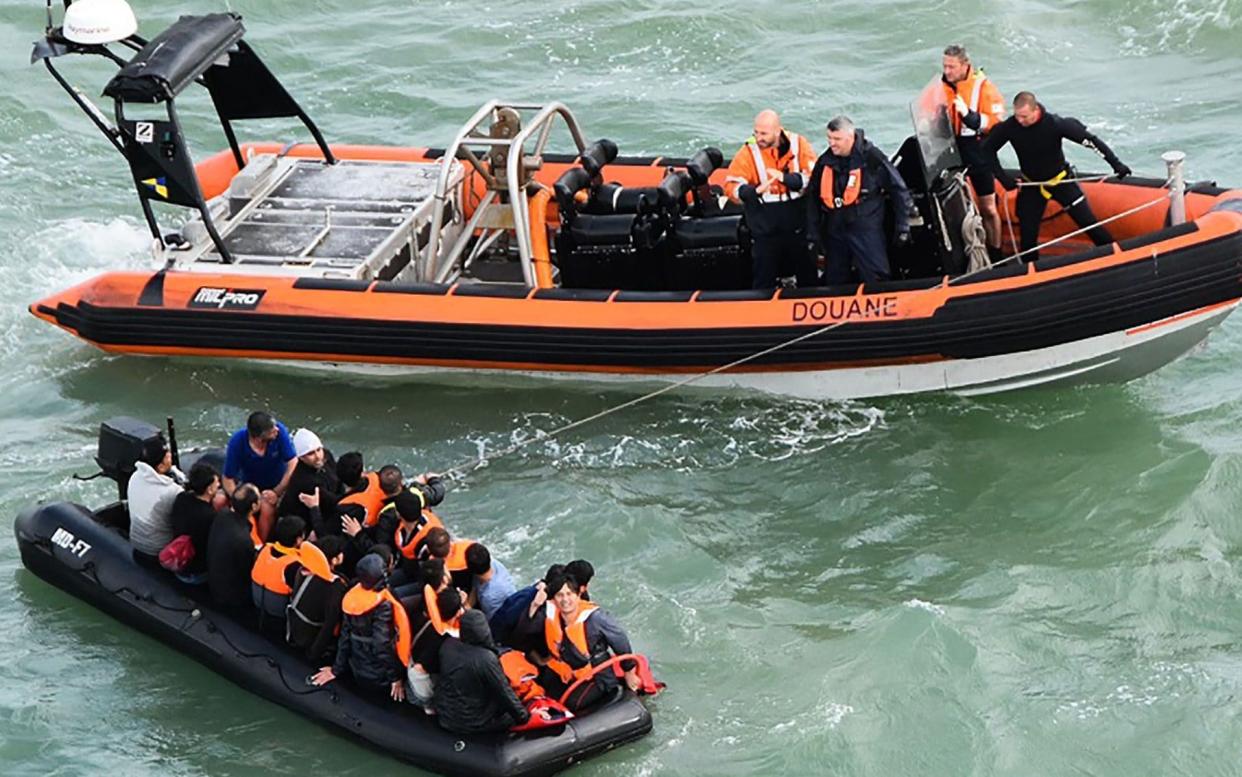Legal challenges blocking migrant removals, even though most have claimed asylum elsewhere

Some two thirds of this year's record 5,000 Channel migrants are not being deported partly due to legal challenges over their human rights, MP's were told on Thursday.
Abi Tierney, a Home Office director general for immigration, revealed that 71 per cent of the Channel migrants’ asylum claims that her department had so far processed were not the UK’s responsibility because they had already previously claimed asylum in another EU country.
Under an EU agreement, known as the Dublin Convention, the migrants should legally be returned to whichever country they arrived in first for their asylum claim to be considered there. Of the remainder, 20 per cent had their asylum claim accepted in the UK, and ten per cent were refused.
The shock figures demonstrate the scale of the asylum crisis facing Priti Patel, the Home Secretary, as her department struggles to return migrants to other EU countries. Removing the migrants is seen as a critical factor in deterring further arrivals.
On Friday, lawyers used human rights laws to block a flight to Spain of 23 Channel migrants. Eleven of them were deported on Wednesday morning on a charter flight, but not before the Home Office had to fight legal challenges in the courts until 2am.
Thursday's departures mean that only 200 of more than 6,000 migrants who have arrived in the past 18 months have been returned to EU states after checks on databases found they had claimed asylum in those countries.
Tyson Hepple, director general of immigration enforcement, admitted removing the migrants was “particularly difficult” partly because of Covid-19 reducing the number of flight, legal challenges, and EU regulations which allowed only a six-month window to negotiate a return.
“There are a large number of last minute legal challenges that we are finding make it more difficult. Last night we were in court until 2am dealing with legal challenges. Our duty judge dismissed it on all counts,” he said.
Mr Hepple said it was being compounded by EU countries also placing a cap on the number of migrants they would take back each week to just 10, even though hundreds are currently crossing the Channel to the UK each week. Wednesday saw a record 409 reach British shores.
“When you are dealing with 5,000 migrants who have come over on boats who all have asylum claims, the prospect is that it is going to take a long time even without the interventions of certain lawyers acting for people,” he said.
Chris Philp, the immigration compliance minister, revealed on Wednesday that around 1,000 have been identified for removal, after claiming asylum elsewhere in Europe.
He told MPs on Wednesday: “It's also essential to return people who make the crossings where we can, and we are currently working to return nearly 1,000 cases where migrants had previously claimed asylum in European countries and, under the regulations, legally should be returned there.”
He added: “We have a large number of further flights planned in the coming weeks and months to make sure that those people who legally should be returned will be returned.”
More than 5,000 have crossed the Channel this year with a huge surge in August due to good weather and calm seas. The record number who arrived on Wednesday followed four days of rough weather, during which there were no reported arrivals along the Kent coast.
Dan O’Mahoney, the new clandestine Channel threat commander, gave evidence to the Home Affairs Committee on Thursday morning.
He said that “close to all” of the small boats arriving in Britain were claiming asylum when they arrived, adding that “unprecedented weather patterns” in July and August had led to a a surge in arrivals.
He told the MPs: “I think it’s important to say that the home secretary’s commitment to solving this problem and my commitment to solving this problem is absolute.
“It’s an incredibly complex problem that requires interventions at every stage of the route and some really, really innovative thinking.”
Acknowledging differences with strategies used in other countries, he added: “Nobody in the world has solved this problem.”
Mr O’Mahoney said that officials were “not currently intercepting migrant boats aggressively in any way”.
CLARIFICATION: An earlier version of this article stated that Channel migrants have no legal right to claim UK asylum, and that such claims are not 'credible', where they have already claimed asylum elsewhere. Although migrants may be returned to the country where they first claimed asylum, under the terms of the Dublin Convention it is not against the law for them to claim asylum in the UK if they arrived in another signatory country before travelling here, and such claims can have legal credibility. The article has been amended accordingly.

 Yahoo News
Yahoo News 
